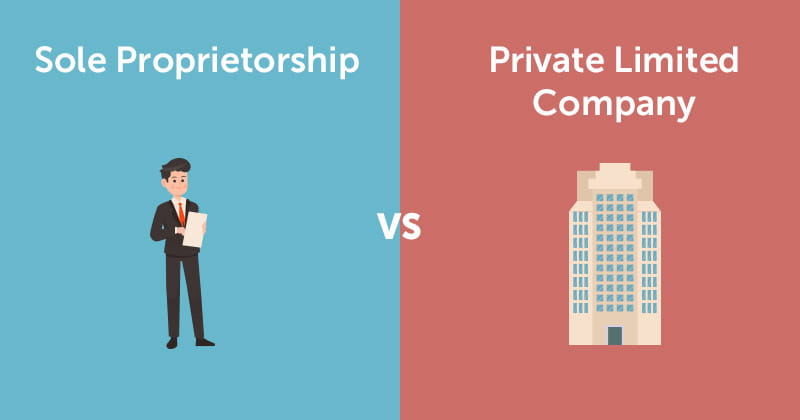In Singapore, a sole proprietorship is often the easiest and most cost-effective business structure to operate. However, as a business expands and revenue increases, there may come a time when converting the sole proprietorship into a private limited company becomes necessary. This process, also known as incorporation, offers several advantages that can supplement the rationale for making the switch.
Why Convert a Sole Proprietorship into a Private Limited Company?
One of the main motivations for converting a sole proprietorship into a private limited company is business expansion. As a business grows, it requires a more robust legal structure that offers benefits such as separate legal personality and limited liability.
Separate Legal Personality and Limited Liability
A private limited company has its own legal personality that is separate from its shareholders or company officers. This means that the company can enter into contracts, own assets, and be held liable for its own actions. In contrast, sole proprietorships do not have separate legal personality from their owners. As a result, the sole proprietor bears unlimited liability and is personally liable for all lawsuits that the business may face.
Incorporating a private limited company provides the owners with limited liability, meaning that their personal financial risk is lower than that of sole proprietorship owners. The liability of the company is limited to the amount of its paid-up capital, providing a level of protection for the owners’ personal assets.

Tax Benefits
Another advantage of converting a sole proprietorship into a private limited company is the potential for tax benefits. In a sole proprietorship, the applicable tax rate for profits earned is determined by the owner’s personal income tax rate, which ranges from 0% to 22% depending on the individual’s chargeable income.
On the other hand, companies in Singapore are subject to a flat corporate tax rate of 17% on their chargeable income. By converting the sole proprietorship into a private limited company, the owner may be liable for lower taxes, depending on the amount of chargeable income earned.
Additionally, private limited companies in Singapore are entitled to tax rebates granted by the Inland Revenue Authority. These tax benefits are not extended to sole proprietorships, making incorporation an attractive option from a tax perspective.
Wider Funding Options
Converting a sole proprietorship into a private limited company opens up opportunities for wider funding options. Sole proprietorships often rely on the owner’s personal funds or creditworthiness to obtain financing. In contrast, companies have more financing options, such as equity capital from shareholders, loans secured through corporate assets, or unsecured financing on the company’s credit.
Financial institutions and investors are generally more confident in providing funding to a company that is not solely dependent on an individual. The presence of shareholders and a management team governed by a board of directors instills trust and confidence in the company, making it more attractive to potential investors and lenders.
Future Succession
Another consideration when contemplating the conversion of a sole proprietorship into a private limited company is future succession planning. The existence of a sole proprietorship is contingent on the owner’s existence. If the owner retires or passes away, the sole proprietorship ceases to operate or even exist.
In contrast, a private limited company continues to exist even if the founder, a director, or a shareholder retires or dies. The company can be transferred or sold, providing options for the future of the business. A private limited company is terminated only if it is wound up, offering greater stability and continuity compared to a sole proprietorship.
Disadvantages of Converting
![Sole Proprietorship Vs Pte Ltd In Singapore: 9 Differences [2024]](https://www.tembusulaw.com/wp-content/uploads/image3-4.jpg)
While there are numerous benefits to converting a sole proprietorship into a private limited company, it is essential to consider the potential disadvantages as well. One primary disadvantage is that the new company will become subject to more regulations than before.
A private limited company must comply with formalities such as holding meetings, filing annual returns, and maintaining formal documentation, including a certificate of incorporation and a company constitution. In contrast, sole proprietorships are not required to adhere to such formalities.
Complying with additional statutory regulations increases the administration expenses for company owners. It is important to weigh the benefits against the higher compliance costs to determine if converting is in the best interest of the business.
Procedure for Converting a Sole Proprietorship into a Private Limited Company
Converting a sole proprietorship into a private limited company in Singapore involves several steps. By following these procedures, business owners can successfully transition their businesses to a new legal structure.
-
Register the New Company: Before applying to register the new company, business owners should ensure they meet the requirements for setting up a private limited company in Singapore. The application can be submitted through the Accounting and Corporate Regulatory Authority (ACRA)’s BizFile+ website.
-
Obtain Approval for the Company’s Name: If the business owner wishes to use the sole proprietorship’s existing business name for the new company, a “No Objection” letter should be submitted to the Registrar.
-
Execute a Formal Transfer of Business Assets: Promptly transfer all business assets from the sole proprietorship to the newly-incorporated company. This includes closing the bank accounts used for the sole proprietorship and opening new bank accounts for the private limited company. Settle any debts of the sole proprietorship and convert its remaining assets into capital for the company. Novate or re-sign contracts, service agreements, or leases that were previously under the sole proprietorship. Reapply for licenses or permits that are not transferrable from the sole proprietorship to the company.
-
File a “Cessation of Business”: Within three months of incorporating the new company, file a “Cessation of Business” on BizFile+ to inform ACRA that the sole proprietorship has ceased.
Post-Incorporation Matters

After incorporating the company, there are several post-incorporation matters to consider to ensure compliance and smooth operation.
-
The business registration number issued by ACRA must be included on all letterheads, invoices, billings, or other official documents of the company.
-
If the company is involved in import, export, and transshipment, it must be registered with the Singapore Customs for a Customs Account.
-
Companies with an annual taxable turnover of more than or expected to be more than SGD 1 million must register for Goods & Services Tax (GST).
-
The company must register with the Central Provident Fund (CPF) for making contributions to its employees’ CPF accounts.
-
The company is also required to pay a Skills Development Levy to the SkillsFuture Singapore Agency for each employee hired.
While converting a sole proprietorship into a private limited company offers numerous benefits, it is crucial to carefully consider the implications and consult with a corporate lawyer if needed. The decision should be made based on the specific needs and circumstances of the business.
At [Your Company Name], we provide comprehensive corporate services for businesses at competitive rates. Our team of experts can guide you through the process of converting your sole proprietorship into a private limited company and ensure compliance with all necessary regulations. Contact us today for assistance with your business needs.
